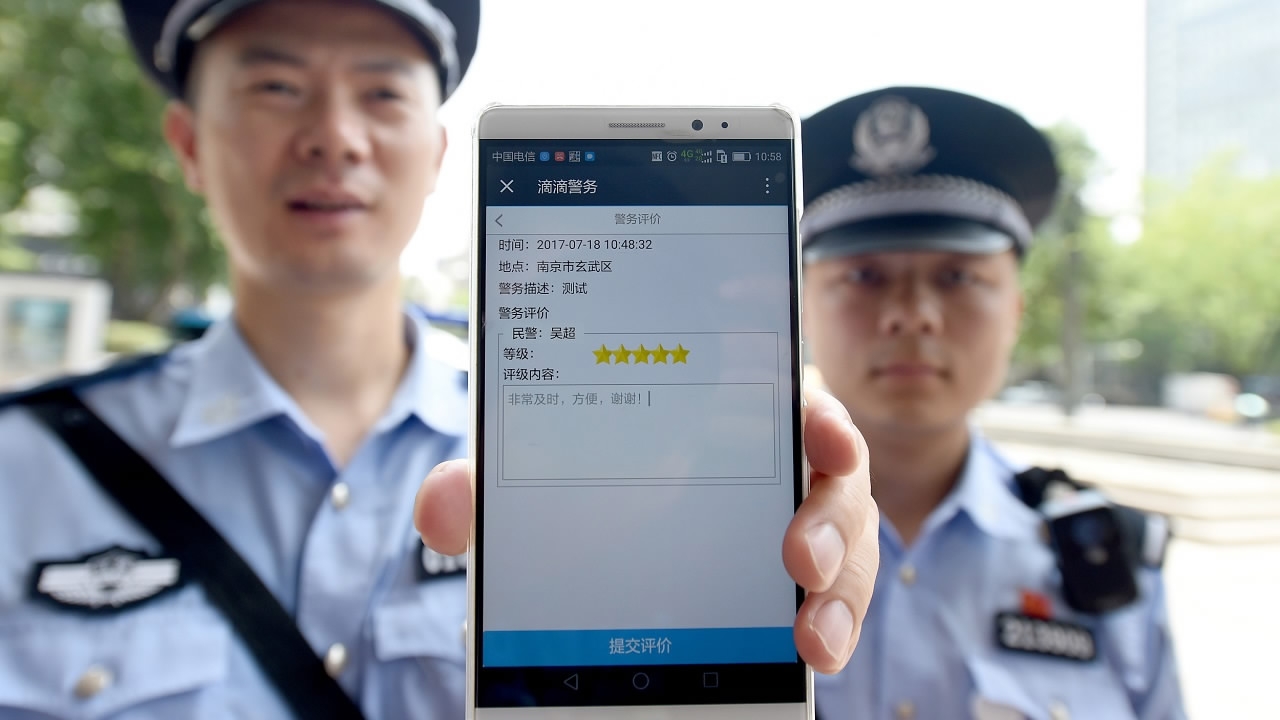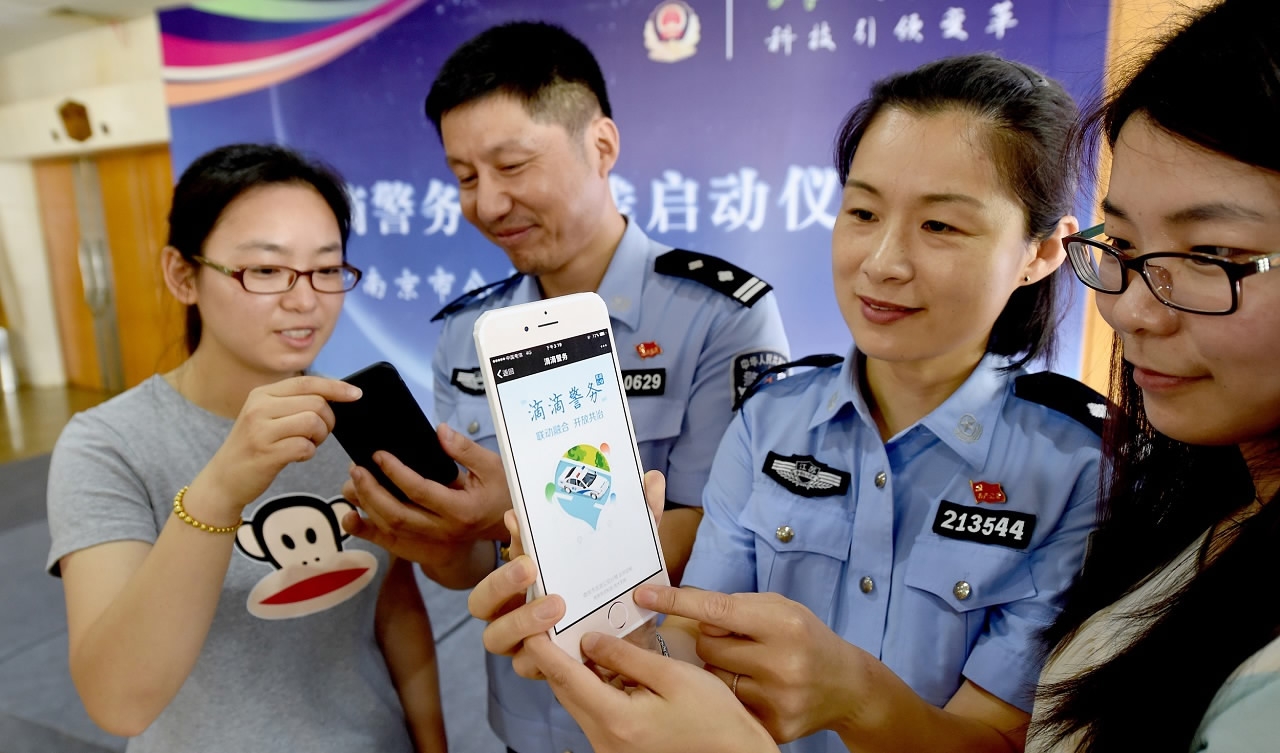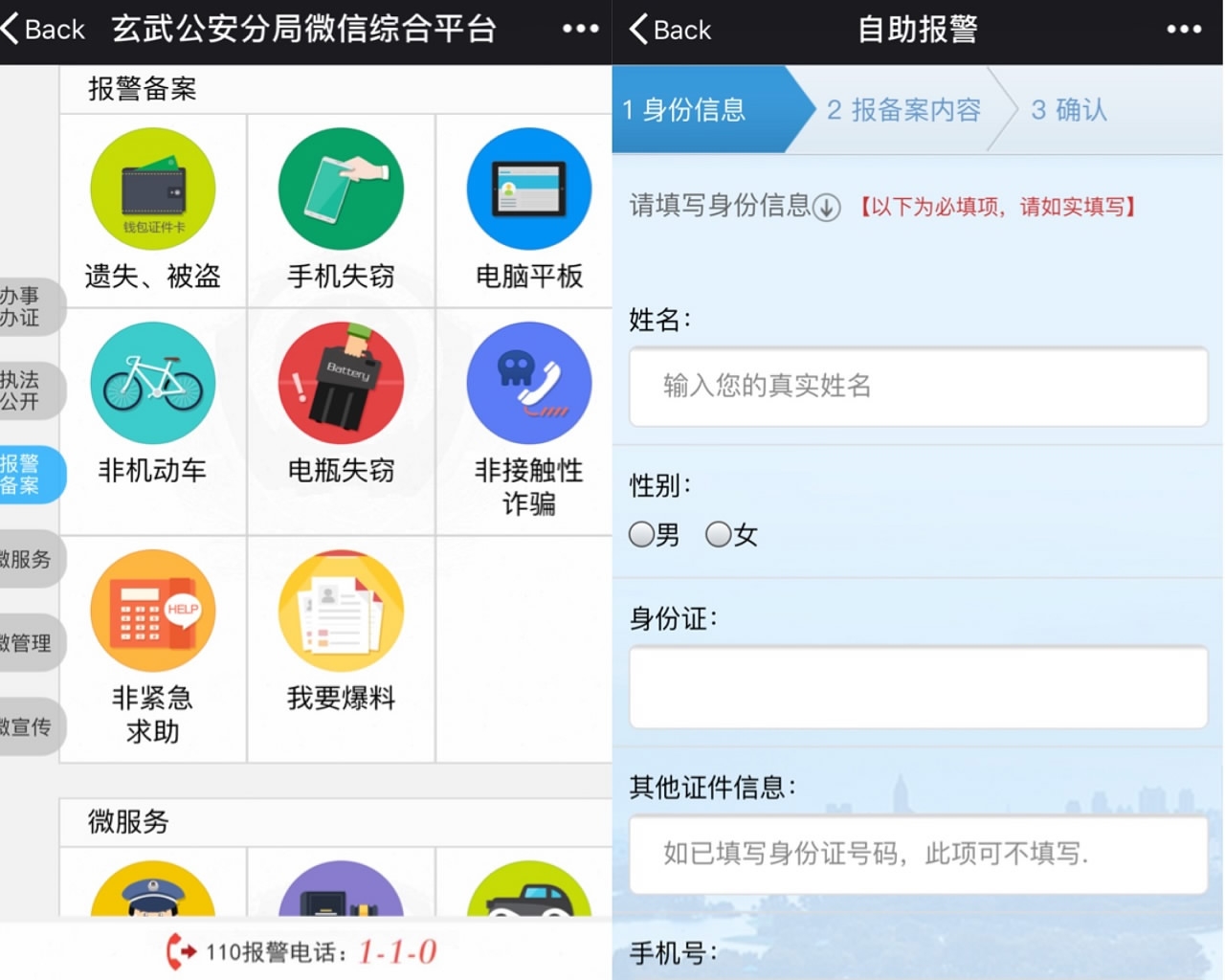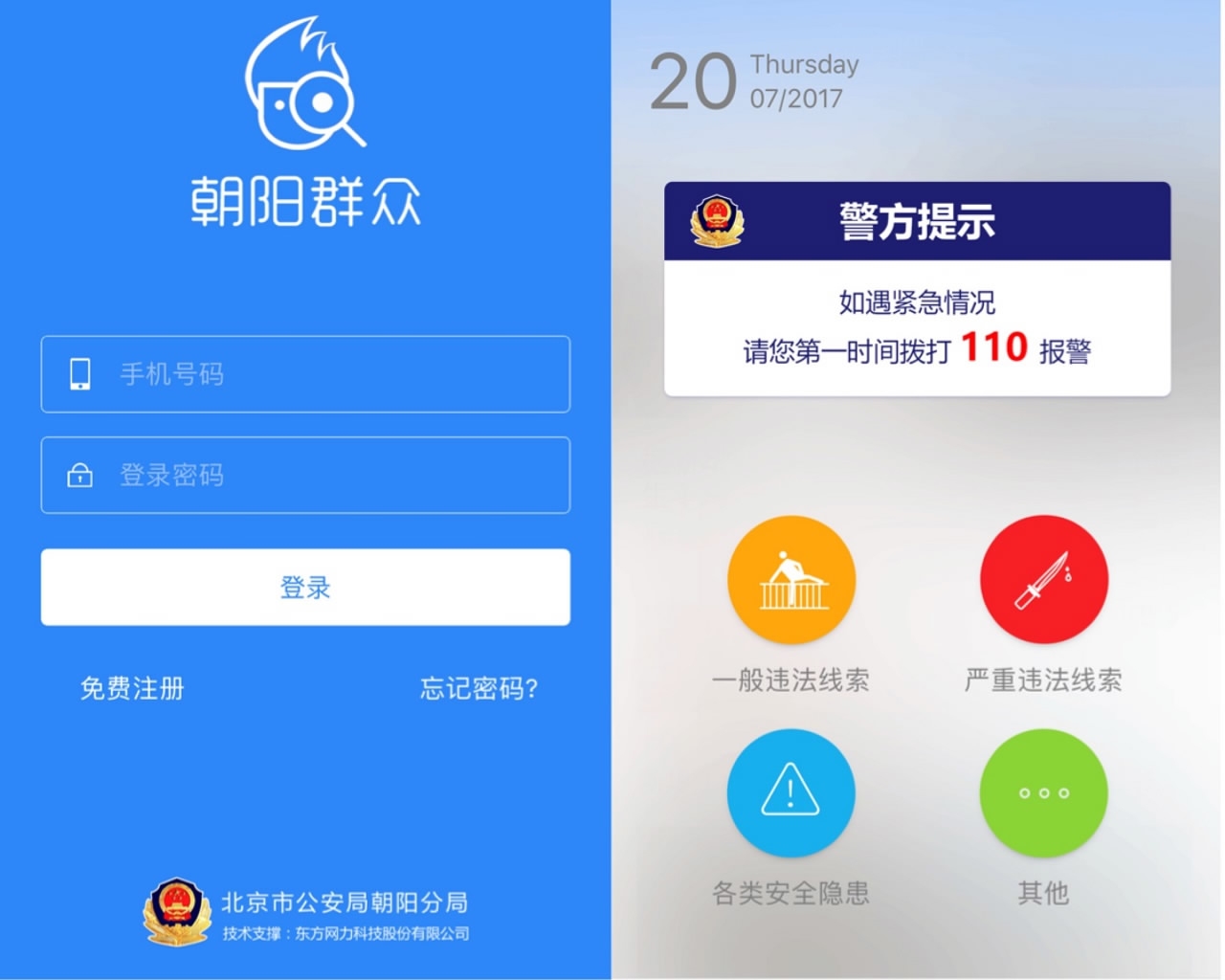
Tech & Sci
15:04, 20-Jul-2017
China police to launch service on WeChat

People living in Xuanwu District in Jiangsu's provincial capital, Nanjing, are now able to report cases through "Didi Police" on the WeChat messaging app.
Launched on Tuesday, "Didi Police", which is similar to the main online-hailed-car platform Didi Chuxing, contains three major functions that enable police officers to conduct group consultations and release tasks, and most importantly, allows local citizens to report cases, said Feng Su, head of the Xuanwu Public Security branch.

Police officers introduce "Didi Police" to citizens on the launching ceremony on July 18. /VCG Photo
Police officers introduce "Didi Police" to citizens on the launching ceremony on July 18. /VCG Photo
Volunteers can also join local police force through the platform, which allows Xuanwu police to integrate and get help from resources both inside and outside the bureau.
Report cases via cellphones

Interface of "Didi Police". /CGTN Photo
Interface of "Didi Police". /CGTN Photo
As the most eye-catching feature, "Case-report" is now available to take non-emergency cases such as stolen property, animal harassment, and disputes between taxi drivers and passengers.
Local citizens can enter "Didi Police" via WeChat. Once a case is reported, the police force nearby will start "snatching the order", just like online hailed car drivers, and head to the scene as fast as they can. Users can send their current locations to the police and track the responding officers on their phones.
The police station will process the case with the traditional procedure if no officer answers the case after one minute, Lu Wei, political commissar of the Xuanwu Public Security branch said.
The "Chaoyang Masses" app

Interface of "Chaoyang Masses". /CGTN Photo
Interface of "Chaoyang Masses". /CGTN Photo
The Beijing police have also been working in a "smarter" way. This February, an app named "Chaoyang Masses" went viral among netizens, which allows local people to report suspicious activities by uploading videos, photos or text.
The app took its name from anonymous civilian informants from Beijing's Chaoyang District, where masses living in this area are often credited by police in a series of raids in recent years, targeting drug-using celebrities living in the district.
Local authorities reported earlier this month, there are over 130,000 real-name registers on "Chaoyang Masses" (about 60,000 active users), who provide more than 20,000 clues per month, including street fraud, drug-using, non-motor vehicle stealing, and terrorist activities.
900km

SITEMAP
Copyright © 2018 CGTN. Beijing ICP prepared NO.16065310-3
Copyright © 2018 CGTN. Beijing ICP prepared NO.16065310-3